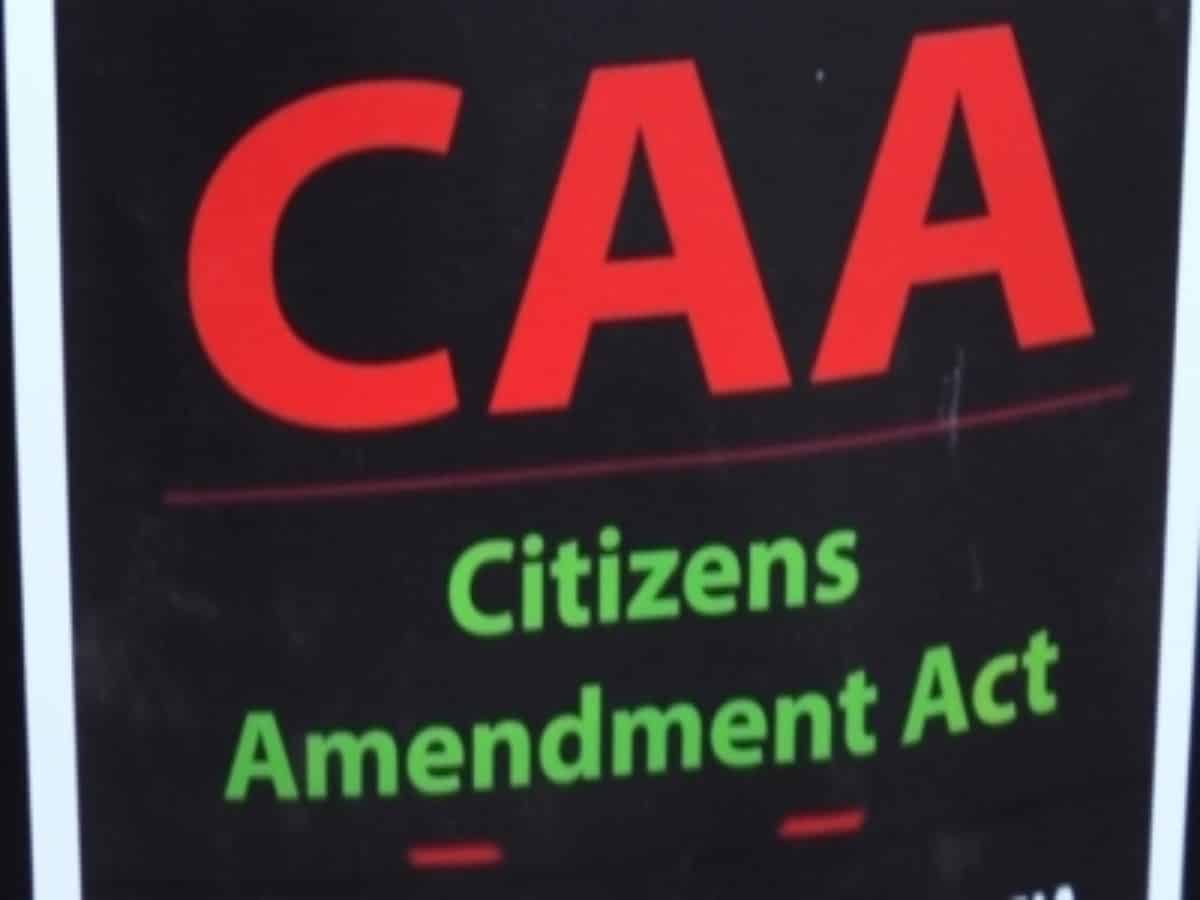
As tributes were paid to five people killed during an anti-CAA stir in Assam four years ago, various organizations on Tuesday, December 12, resolved to again build up a movement against the law if the government tried to implement it.
Memorial meetings were organized in different parts of the state, including Guwahati, by political parties as well as student and civil society organizations.
The state witnessed widespread violent protests after the Citizenship (Amendment) Act, or CAA, was passed in Parliament in December 2019.
The All Assam Students’ Union (AASU), which had been at the forefront of the anti-CAA movement, organized a memorial at Hatigaon Higher Secondary School field here.
Residents also joined them in paying tribute to the five slain people, including local teenager Sam Stafford, killed during the protests four years ago in different parts of the state.
Similar memorial prayers were organized by the AASU across the state.
The memorial prayers were held on Tuesday as Stafford, the first person to be killed in the stir, died on December 12, 2019.
AASU said it will continue to stir against the CAA, and its partner organizations have also been staging protests against the Act in other northeastern states as well.
Independent legislator Akhil Gogoi, one of the prominent leaders of the anti-CAA agitation who was jailed for a prolonged period for his role as a Krishak Mukti Sangram Samiti (KMSS) leader in 2019, said the agitators were ready to take to the streets again if the government tried to implement the Act.
“KMSS has resolved once again today that we will resume our agitation if the government attempts to implement CAA. We will start taking the matter to the public once again and take to the streets again, if needed,” he asserted.
Gogoi, who now heads Raijor Dal, a political party formed after the anti-CAA movement, paid tribute at a program organized by KMSS.
He also maintained that the anti-CAA agitation will go down in the annals of history as one of the biggest movements and will serve as an inspiration for posterity.
Assam Jatiya Parishad (AJP), another political outfit born post-anti CAA movement, also organized a memorial meeting at Panitola in Tinsukia district.
Party president Lurinjyoti Gogoi, who was the AASU general secretary in 2019, said the sacrifices made by the people during the anti-CAA movement will always be remembered.
“We will continue to resist any attempt to implement the CAA,” he said.
The Nagarikatta Sangshudhani Ain Birudhi Samannai Samiti, a civil society forum against the CAA, also organized a memorial meet in Guwahati.
Eminent litterateur Hiren Gohain, CPI (M) leader Hemen Das, and Assam Trinamool Congress president Ripun Bora, among others, attended the meeting.
Later, talking to reporters, Gohain said the next course of action by the forum will be chalked out soon.
“Our Constitution does not base citizenship on religion. We will resist all attempts to deviate from its basic tenets. We will soon get together and determine the next course of action to take forward the movement against the CAA,” he said.
The CAA seeks to provide Indian citizenship to Hindus, Jains, Christians, Sikhs, Buddhists, and Parsis entering India on or before December 31, 2014 from Bangladesh, Pakistan, and Afghanistan after five years of residence here.
It was passed by both Houses of Parliament and given presidential assent in December 2019, though the rules have yet to be notified.
Assam witnessed widespread anti-CAA agitation led by students and other organizations in early 2019 before the Lok Sabha polls, but it subsided after the 2016 format of the bill lapsed in June 2019, when the term of the Lok Sabha ended as it could not be tabled and passed in Rajya Sabha.
When the Bill of the Present CAA was passed in both Houses of Parliament in December 2019, the state witnessed one of the most violent protests for several days as agitators engaged in pitch battles with police and administration in almost every major city or town, leading to the deaths of five people.
This led to a crackdown by the state government, including arrests of leaders of the agitation, the snapping of internet connectivity, and the imposition of a curfew.



